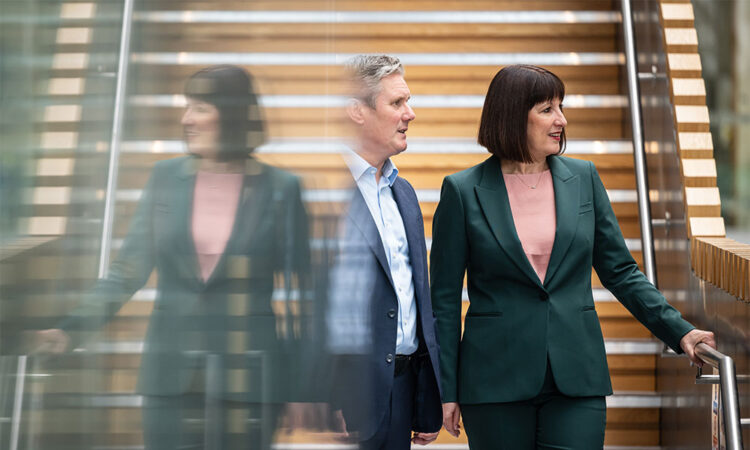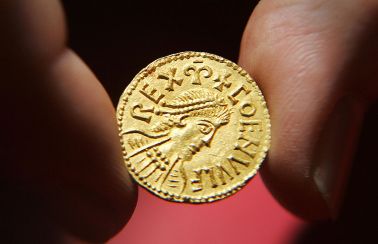
If the 0.6 per cent first-quarter GDP uplift reported by the Office for National Statistics is sustained for the rest of this year, Rishi Sunak will be able to claim – as he waves goodbye – that he and Jeremy Hunt have succeeded against their naysayers in dragging the UK economy from pandemic depths back to the level of ‘trend growth’, around 2.5 per cent per annum, that used to be thought of as normal. That’s spookily in line (as is the path of inflation) with Ken Clarke’s achievement as Tory chancellor in 1996 ahead of the election that swept Blair and Brown to power the following May. How lucky is today’s untested, unloved and mostly unknown Labour front bench to be riding to power on a tsunami of anti-Tory sentiment in which a recovering economy, including rising real wages, apparently has no tangible impact on voters’ intentions?
Meanwhile, I’m intrigued by ONS chief economist Grant Fitzner’s claim that ‘you could say the economy is going gangbusters’. Did he pick the right word? Perhaps he meant ‘ghostbusters’, in the sense that, however many economic demons Sunak and Hunt succeed in chasing away, there’s still (to quote Ray Parker Jr’s memorable 1984 lyrics) ‘an invisible man sleepin’ in your bed’: his name is Keir Starmer.
Outside Labour’s box
Labour’s ‘ten policies to change Britain’, published to not much media attention in March, said absolutely nothing about growth or productivity. Other signals so far from Keir Starmer and his shadow chancellor Rachel Reeves have added little: they won’t increase the rate of corporation tax and they will ‘bulldoze’ the planning system to allow more house-building on greenbelt land. But they’ll also add extra costs for employers by enlarging workers’ rights.
So what else might they do to add fizz to the economy without looking like irresponsible incomers on course for a clash with the gilts market? How about some pragmatic pick-and-mix reforms of the VAT system to help smaller businesses that are the bedrock of growth and to boost UK spending by foreign visitors?
Borrow a policy from the Reform party and raise the threshold for VAT registration from £90,000 to £120,000. Borrow a policy from this column and slash the VAT rate for hospitality, so that pub-owners and restaurateurs can make a living and create more jobs. Embrace the Sunday Times campaign for reinstatement of VAT-free shopping for foreign tourists – as announced by Kwasi Kwarteng but rescinded by Jeremy Hunt. And drop the class-war wheeze to impose VAT on private-school fees, the abandonment of which would encourage wealthy foreigners to despatch their kids to our world-class educational establishments while the parents shop till they drop in Bicester Village and Bond Street.
There you are, Sir Keir: if you want a prosperous private sector to generate sufficient tax revenues to fund real Labour public-spending plans, start policy-picking outside the Labour box.
The airport experience
The measure of a civilised and ambitious country – I used to think, in my more exotic travelling days – is the airport arrival experience. Potholed highways into town, rip-off taxis with psycho drivers, even attempted kidnappings straight from the terminal (as befell a friend of mine visiting Kazakhstan), all send bad messages to potential spenders and investors. But nothing’s worse than an airless, hour-long immigration queue – and on that test New York’s JFK Terminal 8 last week really took the biscuit.
There were six or eight desks open in a row of 50, and no e-gates. The snaking queue overfilled the hall until an elderly marshal said with a sigh, ‘Oh look, another plane just came in’, followed by ‘Any o’ you folks have a connecting flight in the next 60 minutes?’ To which the best-dressed woman in the line – Goldman Sachs or hedge fund princess perhaps – said: ‘Yes, I do, on Blade.’ ‘OK honey, come on through.’
With a smile of entitlement, the woman overtook at least a hundred of us: Blade, I googled, is a seven-minute $195 helicopter ride from JFK to mid-town Manhattan. This scene from Succession made me smile too – but boy, do they need to sharpen up that airport.
How was early-morning Heathrow by comparison? Remarkably painless. But that was pure luck, because hours earlier every e-gate in every UK airport had simultaneously failed for the second time in a year, once again without explanation from Border Force officials or allocation of blame to software suppliers.
So here’s another note to Sir Keir. Yes, ‘stopping the boats’ matters – but so does welcoming the visitors you want to impress. Make sure our airports are slick.
The next superfood
And what – we need to know – is Starmer’s policy on avocados? The price of the favourite breakfast item for centre-left millennials is set to skyrocket as hotter, drier weather afflicts growers in Chile, Mexico, Peru and elsewhere, according to a report from Christian Aid. Crops will drastically reduce as temperatures rise and water becomes scarcer – a single avocado needing up to 320 litres of water to bring it to ripeness.
That being so, next-generation Islington-ians are no more likely to order smashed avocado on toast than they are to follow it with foie gras and wear real fur coats while doing so. The smooth green icon of dietary virtue will gradually disappear from our menus – to be replaced by what? There’s an obvious gag here about mushy peas. But observation from my last visit to California tells me the next bien pensant superfood will be the sprout, formerly associated with Brussels but widely grown in my native East Yorkshire – where, this year at least, the rain never stops.







